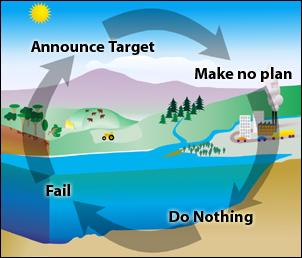For over a decade, Heathrow airport has been wanting to add a third runway, to increase air traffic. Its been vigorously opposed by people concerned about the environmental impact. And now, its been ruled illegal on climate change grounds:
Plans for a third runway at Heathrow airport have been ruled illegal by the court of appeal because ministers did not adequately take into account the government’s commitments to tackle the climate crisis.
The ruling is a major blow to the project at a time when public concern about the climate emergency is rising fast and the government has set a target in law of net zero emissions by 2050. The prime minister, Boris Johnson, could use the ruling to abandon the project, or the government could draw up a new policy document to approve the runway.
[...]
The court’s ruling is the first major ruling in the world to be based on the Paris climate agreement and may have an impact both in the UK and around the globe by inspiring challenges against other high-carbon projects.
Lord Justice Lindblom said: “The Paris agreement ought to have been taken into account by the secretary of state. The national planning statement was not produced as the law requires.”
This doesn't necessarily kill the project - as noted, the government could redo the decision, taking climate change targets into account (though its hard to see how airport expansion is compatible with them). But it raises the bar on both this and future projects - and not just in the UK. New Zealand courts are not afraid to look at foreign precedents in analogous cases, and the Zero Carbon Act has included a clause stating that decision makers may take climate change targets into account. Importantly, Parliament removed a clause preventing any challenge for a failure to do that, on the grounds that they wanted to let the law develop - meaning that they wanted the courts to decide when that "may" effectively becomes a "must". The net result is that the sort of projects where it would be unreasonable not to consider climate change impacts - say, fossil-fuelled power stations, or airport expansions - are open to legal challenge on climate change grounds. And they may find their plans overturned if they are not compatible with the government's climate change targets.






